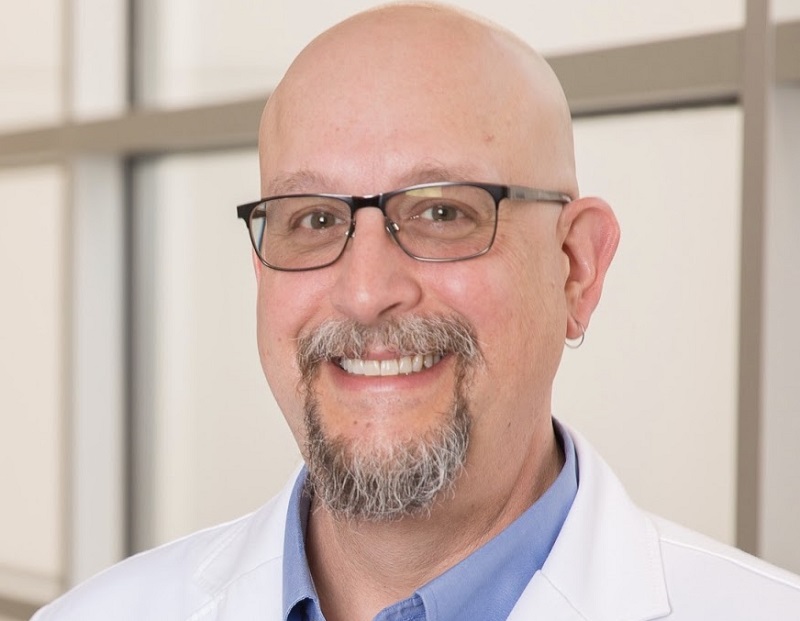This neurologist went from dropout to doctor of the year
By American Heart Association News

Dr. David B. Wheeler once prepped chickens at a smorgasbord restaurant in Missoula, Montana – not exactly a typical path for an American Heart Association Physician of the Year. But Wheeler has rarely followed a typical path.
Wheeler, 54, who will be honored next month in Dallas, is a high school dropout who became a Rhodes Scholar. He's also a would-be researcher who found he preferred patients to labs, and a self-described rebel who learned to work the system as a voice for the needs of rural people.
Wheeler, a neurologist who owns and operates a private practice, also works at Wyoming Medical Center in Casper. His connections to the AHA date to 2006, when his hospital asked him to help seek certification under new guidelines for stroke care.
He's since served on boards at the AHA's national and affiliate levels while leading his hospital to become a regional center for stroke care. He has lobbied legislators, helped develop a telemedicine network and helped the AHA win a grant from the Centers for Disease Control and Prevention to host a major conference.
As one of the few doctors in a state that defines wide-open spaces, he feels it's his job to be "a very squeaky wheel at whatever level I'm working at" to explain the needs of people who, for example, might face a three-hour drive to see a specialist.
It's been a learning process.
"I've always thought of myself as a terrible politician because I'm so blunt and try to just openly express what I think," he said. "And sometimes I feel like I do so to the point of being a little bit offensive. It's sort of reflective of where I come from and where I live."
But even as he gets around in his anything-but-subtle black-and-red Mustang Boss 302 Laguna Seca Edition, or on his equally distinctive Victory Cory Ness Cross Country motorcycle, he thinks he might have mellowed a bit in recent years, thanks in part to his AHA work.
When trying to get entities to improve care, he used to yell at them. "We never got anywhere," he said. Now he offers to help – over and over again. And he aims for clear goals instead of just trying to make waves. "What I'm trying to do is move us all together in a common direction, and I do think I've learned that skill," Wheeler said. "And being on AHA boards has been really instructive. The people I get to work with have been incredibly accomplished leaders and communicators. It's rubbed off on me a lot."
It's a growth trajectory that goes all the way back to his teen years. "Extremely rebellious, really bored and just at the time pretty lazy," he dropped out of school the day he turned 16. His guidance counselor told him that, at best, he could hope to become a garbage man, but more likely he would end up working at the Circle K. "Being a big fan of Space Invaders and hot dogs, I thought working at Circle K sounded just fine."
But after a few years of working at The King's Table restaurant, he met a girl, JoAnne, who would become his wife. She led him to enroll at the University of Montana, where a class in cellular physiology reawakened a childhood ambition to be a doctor. He won a Rhodes Scholarship and ended up at Stanford with plans to become a researcher. During a residency in Boston, he realized that taking care of patients was what he really wanted to do.
The consistent theme in his life, he said, is "a passion for making the world better for other people." His work, he said, has let him do that.
"It all feels like it came together really well."
If you have questions or comments about this story, please email [email protected].



